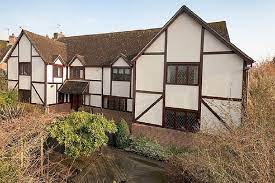Last Updated on March 4, 2024 by Ali Hamza
Repossession is a last resort, and for owners, it is a process that is immensely stressful, frustrating and even frightening. Unfortunately, someone’s loss could be another’s gain.
Repossessed houses for sale may be a good way to purchase a property at a lower price and meet your goals, whether investment, development or a home in which to live.
What do you need to know when looking for homes that are repossessed?
1. Establish Your Budget.
A repossession can be a good way to snag a bargain (if you are careful, which we will discuss in more detail in a moment). But you can find a house for as much as 30% below market value. Still, it is important to establish your budget – and stick with it. It can be easy to get carried away in the bidding process if buying at an auction, but you want to keep your goals in mind. A “bargain” is not such a great deal at all if it puts you in financially difficult territory.
2. Learn What to Look for – and How Much It’ll Cost.
While not a universal truth, the fact is that many repossessed homes can be in a state of disrepair. Browse through an auction catalogue and see what we mean. They can range from needing fairly extensive repairs to being completely uninhabitable. Learn what issues to keep an eye out for, including problems with the roof, wiring, heating and plumbing systems, subsidence, water damage, mould etc. These can be very expensive, requiring significant investment to resolve. When you think about the cost of a house for sale, remember to factor in these costs. Then ask, is it really that much of a bargain?
3. Investigate Properties Thoroughly.
We know that in the frenzied market of the past few years, people bought houses sight unseen. There was such high demand, coupled with low inventory, that buyers didn’t even bother viewing houses much less instructing valuations and surveys. Do not do this when it comes to repossessed houses you are thinking of purchasing. Arrange a viewing through the auction house, and if you do not have building/repair knowledge, take someone who does. Ask for the particulars and the legal pack to make sure you have all of the information you need to make a sound decision.
4. Learn How Auctions Work.
Repossessed houses traditionally sell through auctions. The lender has assumed possession of the property – and they want to get rid of it as fast as it can. It is not an asset to them but rather a liability that costs them money each day it sits. Thus, an auction will typically be set quite quickly (within 30 – 60 days). This gives you some time to brush up on your auction knowledge, rules and procedures. How it will work depends on the specific auction house; you may be bidding in person or online (where bids are generally accepted up until a specific time). Be sure to enquire, and establish an account or register your interest with the auction house as soon as possible.
You should also know that auctions for repossessed houses can be competitive, depending on the market. You may be up against investors and others who have a lot of experience in this area – as well as big pockets. Just be aware that while you may not have anyone bidding against you for a particular property, the opposite may well be true as well. Again, keep your budget in mind – and keep your cool.
5. Get Your Financing In Order.
Apply for a mortgage agreement in principle or another loan option ahead of time. Keep in mind that many lenders will not approve financing for a repossessed house (depending, of course, on its age, condition and other factors). They don’t want the headache that another lender is trying to relieve. That said, in a competitive market, you may be able to achieve traditional financing.
If not, make sure you have access to cash and that you are ready to pay a deposit. With auctions, the process moves very quickly. If your bid is successful, you will need to be ready to put down funds that day. Typically, this is 10% of the purchase price. From there, you have 28 days to complete the sale and pay the remainder of the balance.
Yes, this process is accelerated, so be prepared.
Apart from this, if you want to know about How to Get Rid of Ants in your House then please visit our Real Estate category


























